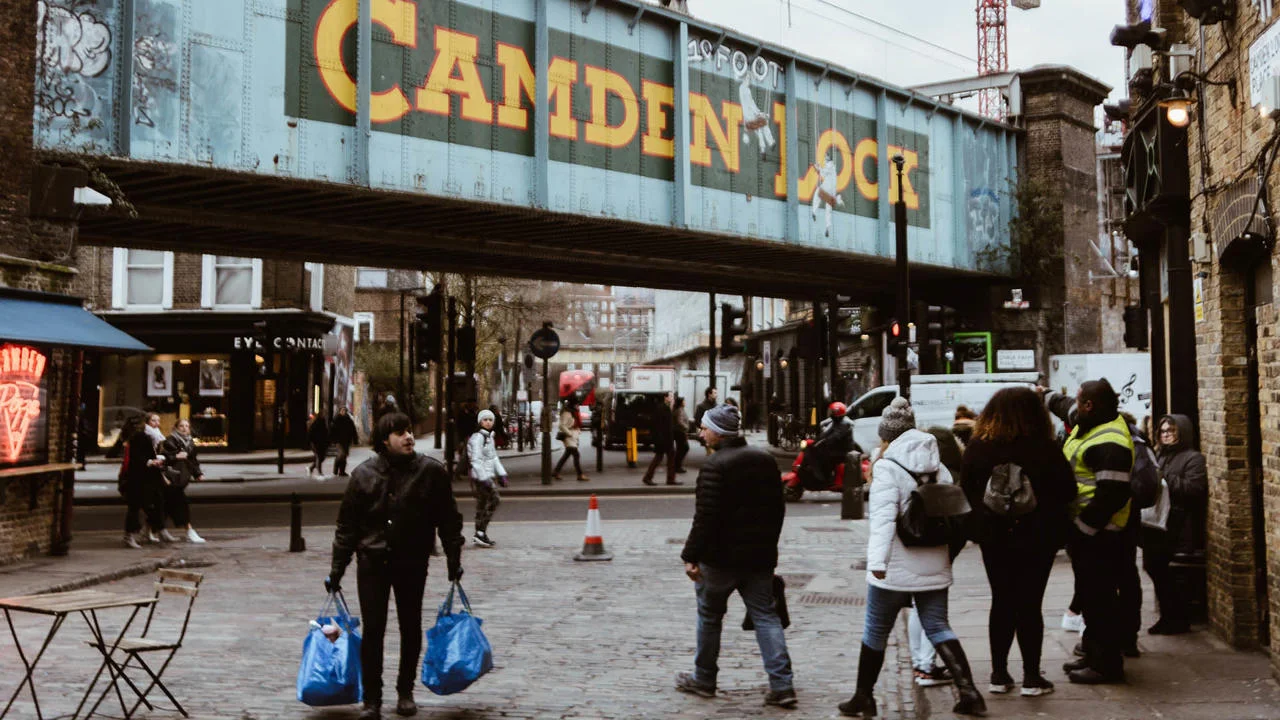High street livelihoods: the social life of street economies in the context of migration and marginalisation

Contents
Across the UK there are everyday high streets which are pockets of dynamic economic, social and cultural activity. Tightly packed shops offer an impressive variety of good and services from an array of fruit and vegetables, to money remittances services, to barber shops and phone repairs. But the social and economic value of these micro businesses, often shaped by global migration, are all too frequently overlooked.
Collaborative research led by Dr Suzanne Hall, Associate Professor in Sociology at LSE, which extended over the period of 2012 to 2018, has highlighted the crucial role played by these streets.
"I was very aware when conducting our fieldwork of a political and economic climate where there was a tightening of borders and, at the same time, a changing world of work," explains Dr Hall. "I was interested in what something as commonplace as the high street might tell us about these intersecting changes – particularly in the context of enduring austerity measures and the increasing casualisation of labour."
Whether they trained as teachers or engineers, they had all become street traders, and moreover traders in deprived parts of UK cities.
Street trading and other career aspirations. Uncovering a picture of structural issues of exclusion
Her research draws on face-to-face surveys with more than 500 shop proprietors in Birmingham, Bristol, Leicester, London and Manchester, as well as conversations with local authorities and community and activist groups.
Through interviews and observations, the research highlighted that the majority of shop proprietors hadn’t begun their careers as traders. Many had been engaged in other forms of work before street trade, had a tertiary education, and were often proficient in several languages.
"Whether they trained as teachers or engineers, they had all become street traders, and moreover traders in deprived parts of UK cities," says Dr Hall. "That process tells you about structures of social sorting and the discriminatory nature of the labour market, and how certain groups become socially positioned and geographically located.
"When we look at employment statistics on who is most likely to be self-employed in the UK, it is groups who are minoritised. These streets tell us that street trade is not a cultural preference per se, rather it reflects structural issues of exclusion and emplacement."
There’s a significant range of daily experimentation that goes on, as shop proprietors read the street and understand what people need and want.
High street multi-cultures generate social and economic experimentation
However, these high streets are also compendiums of multi-culture and creativity, explains Dr Hall.
"When you have a street that is composed of people who come from all over our planet, it promotes various ways of city-making and shop-making. It’s fairly common for a shop to be an emporium of many activities from providing internet access, to playing pool, to drinking coffee, to hosting political conversations, to selling bags of rice, and so on.
"And there’s a significant range of daily experimentation that goes on, as shop proprietors read the street and understand what people need and want. This shape-shifting of shop interiors and different ways of doing things are possible because independent proprietors don’t operate under the more standardising logic of corporate structures."
The value these streets bring is not just economic, it extends to building understanding across cultures and offering social interaction and support to local communities.
"People told us that after the 2008 crisis and the austerity cuts that ensued, their communities had a lot less to spend and shops began to take on additional services and forms of provision which were not simply transactional," explains Dr Hall. "Streets are composed of many resources including shops, public interiors and religious spaces. Together these provide different types of care to the local community, and in some cases, this extended to filling the gaps of a receding state, including substantial feeding schemes, often run by religious institutions.
"When we asked one community activist how people had been affected by austerity, he told us, ‘Our people have always been in recession’. He explained how cyclical rounds of redundancies always disproportionately affect minority groups – whether they occurred as a part of deindustrialisation at the end of the late 80s, or following the 2008 crisis."
Challenging assumptions about regeneration
Working with activists and community groups, this street research work has helped challenge the planning assumptions of regeneration projects and wider displacement processes which threaten these streets. Displacement across UK cities leads to people being squeezed out of affordable living and workspaces every year, and is particularly pronounced in London.
However, influencing planning discussions was not straight forward.
"We initially thought that the surveys we were conducting would help show the socio-economic value of high streets and micro-economies that were being sustained in the most deprived parts of UK cities," says Dr Hall.
"Our engagement with officials was not as easy as I assumed. Part of this is because there is a very established understanding of what constitutes economic value in formal planning and economic discourses.
"Economic value is often seen as something which is global and corporate, and is also tied to an established understanding of what ‘regeneration’ is, and who invests in it. Whereas the streets we researched are about a slower and ongoing process of renewal, often directly tied to community needs. Economic value here is not about quantifiable measures or short-term profits.
"It was a gift to work with activists who were a few steps ahead of us in our understanding of local places. Sometimes this meant quickly having to compile evidence that could be presented in the planning process, to say ‘here is a different account of value’."
In combination with pressure from community organisations, and a number of research collaborations and efforts, this high street research has been part of wider efforts to contribute towards shifts in planning vocabulary, providing authorities with an alternative framework for understanding the different values of micro-scale independent retail.
This enthusiasm for ‘regeneration', ... has really rendered London an extremely difficult place to live for the vast majority of its population.
Advocating for traders in London’s Elephant and Castle shopping centre
Dr Hall, along with Julia King, Research Fellow at LSE Cities, worked with the advocacy organisation Latin Elephant looking at the role of ethnic minority traders in the Elephant and Castle shopping centre in southeast London – which has since been demolished. Their research, connecting with longstanding work that Latin Elephant had been doing in this area, enabled the campaigners to successfully argue for more affordable work and trading spaces in the new development which will be protected for a longer period of time.
"The gains we achieved were small, but I’m aware that change happens slowly and happens through the enormous energies and insistence of people who live and work in places that are under threat," says Dr Hall.
But is the regeneration and "improvement" of our cities inevitable?
"I’m against the version of improvement which is essentially about the accumulation of speculative profit that is seldom fed back into communities and is more likely to be fed upwards to corporations," counters Dr Hall. "We are witnessing the significant displacement of people who live and work in these areas and who have invested in them over long periods of time, only to then have their social and cultural commitments erased.
"This enthusiasm for ‘regeneration’ that we’ve seen across urban landscapes, particularly since the 2008 financial crisis, has really rendered London an extremely difficult place to live for the vast majority of its population. It’s a place where it is increasingly hard to be able to afford to find or hang on to an affordable home or workspace, whether that be a shop or a space for small-scale manufacturing.
"The bottom-line should be, ‘is regeneration going to exacerbate inequality or is it going to address inequality?’. That has to be the fundamental question."
Download a PDF version of this article




